Vietnam Economic Forum 2022 identifies challenges and solutions for growth
The forum saw the active participation of leaders of central and local departments, ministries, branches, multilateral international organisations, embassies, businesses, associations, universities, research institutes, and experts from both home and abroad.
There were four conference sessions co-hosted by leaders of ministries, departments, and branches in the morning, with several important issues on the table, including themes such as “Creating development space and new drivers of economic growth,” “Towards a healthy financial and real estate markets for sustainable economic development in and beyond 2023", and “Developing a sustainable labour market, ensuring social security in socio-economic development."
In the afternoon, Prime Minister Pham Minh Chinh and chairman of the Central Economic Commission Tran Tuan Anh co-chaired a plenary session.
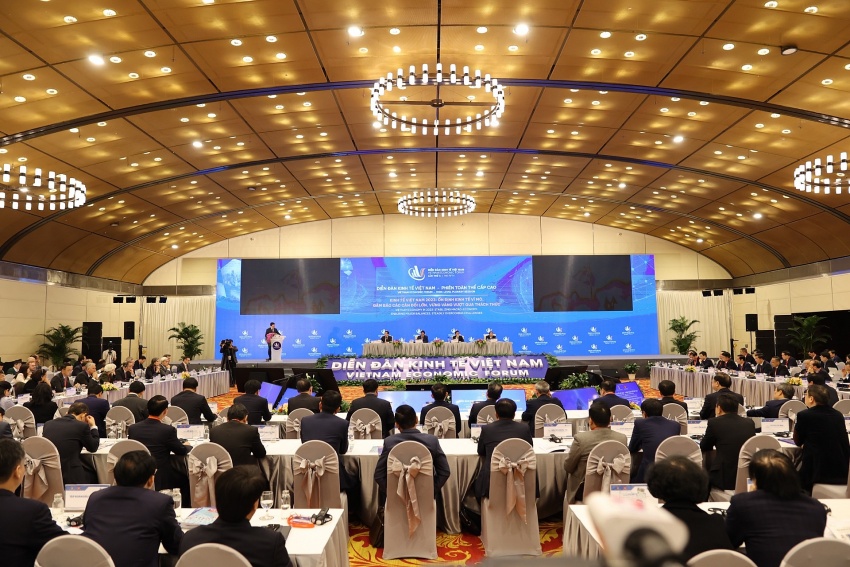 |
| The forum kicks off |
Speaking at the plenary session of the forum, Tran Tuan Anh said that in 2022, Vietnam had achieved many positive results in socioeconomic development, with GDP growth expected to reach 8-8.2 per cent.
“However, we are facing 2023 with many difficulties and challenges as the regional and international context will continue to be complicated and unpredictable. Many concerns are mentioned, such as weakening demand of some major partners affecting domestic orders, low disbursement of public investment capital, unpredictable fluctuations in exchange rates and interest rates, the tension between a number of countries and regions in the world, tightening monetary policy, and so on,” he said
He cited manufacturing purchasing managers index (PMI) dipped to 47.4 in November from 50.6 in October. A score below 50 signals contraction.
Tuan Anh said that the forum is held on the threshold of 2023, marking the third year Vietnam has implemented the Resolution of the 13th National Party Congress, the 10-year socio-economic development strategy 2021-2030, and the 5-year socio-economic development plan 2021-2025.
He also emphasised that the forum needed to focus on the Vietnamese economy's core issues that are both urgent and strategic for the long term. The delegate opinions shared at the forum will be considered to develop policies for Vietnam's economic development in the coming years.
Andrew Jeffries, country director of the Asian Development Bank (ADB) in Vietnam, spoke at the forum. “Vietnam needs to strike a dedicated balance among curbing inflation and maintaining economic growth, and also ensuring the financial sector's stability,” he said.
He emphasised that maintaining price stability should be the primary focus of monetary policy, strengthening the coordination of fiscal and monetary policies more synchronously and effectively, the public investment included should be implemented as planned, with efforts made to accelerate its disbursement.
He said there were no fundamental systematic concerns about the financial system's safety and soundness. However, concerns about the corporate bond market's liquidity and tweaking investors' confidence still existed. So, to minimise risks to stability, it is critical that the government continues to move forward with reforms such as promoting public credit ratings, developing corporate bond funds and pension funds, and tightening the requirements to be qualified as a professional investor.
"We believe that with sound economic fundamentals and strong leadership, Viet Nam will be able to brace the headwinds in 2023. Viet Nam's economic prospects for the medium and long term remain very positive, and we note that continued strong interest in Viet Nam as an FDI destination is a long-term vote of confidence. As a development partner, ADB stands ready to support Viet Nam as required," said Jeffries.
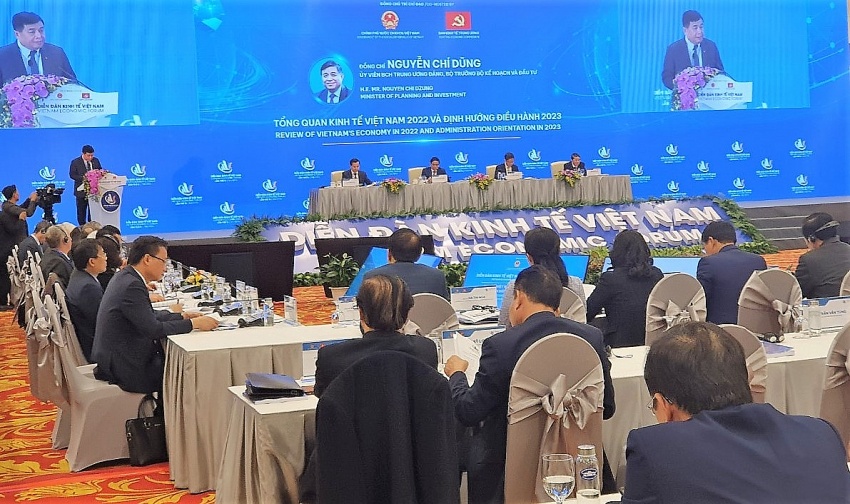 |
| Attendees at forum |
According to forecasts, by the end of this year, Vietnam's economic growth is expected to reach about 8 per cent, marking one of the highest growth rates in the region. A total of 14 out of 15 socioeconomic development targets are expected to be completed or even exceeded this year.
However, in the context of a complicated changing situation in the global economy, production and business activities in Vietnam are expected to face many challenges.
 | Circumnavigating the global economic challenges The Vietnamese stock market has fallen close to 40 per cent in 2022. Given the unprecedented level of participation of new F0 investors during the pandemic, the market downturn in Vietnam has dropped much deeper than other markets in Asia. |
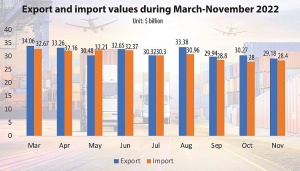 | Economy prepares for external strain Vietnam’s economic growth prospects next year are expected to face tough challenges including slowdown in exports and investment, caused by various global fluctuations. |
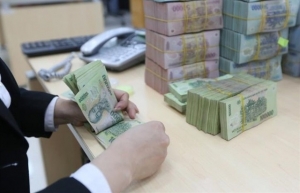 | Positive budget figures ensuring economic balance heading into 2023 The state budget landscape for January to the end of November witnessed positive figures, with enterprises gradually riding out the storm to ensure their performance. |
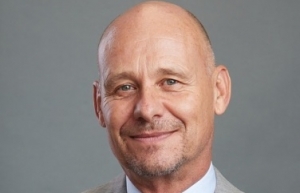 | Dutch economic relations rising ahead of PM’s visit Prime Minister Pham Minh Chinh will pay an official visit to the Netherlands on December 13. Dutch Ambassador to Vietnam Kees van Baar spoke to VIR’s Thanh Tung about the trade and investment prospects between both nations. |
 | Reform imperative to tackle red tape in business Despite efforts of the government in administrative reforms and simplification of business conditions, enterprises are still struggling with cumbersome procedures. |
What the stars mean:
★ Poor ★ ★ Promising ★★★ Good ★★★★ Very good ★★★★★ Exceptional
Related Contents
Latest News
More News
- VinaCapital launches Vietnam's first two strategic-beta ETFs (February 26, 2026 | 09:00)
- PM sets five key tasks to accelerate sci-tech development (February 26, 2026 | 08:00)
- PM outlines new tasks for healthcare sector (February 25, 2026 | 16:00)
- Citi report finds global trade transformed by tariffs and AI (February 25, 2026 | 10:49)
- Vietnam sets ambitious dairy growth targets (February 24, 2026 | 18:00)
- Vietnam, New Zealand seek level-up in ties (February 19, 2026 | 18:06)
- Untapped potential in relations with Indonesia (February 19, 2026 | 17:56)
- German strengths match Vietnamese aspirations (February 19, 2026 | 17:40)
- Vietnam’s pivotal year for advancing sustainability (February 19, 2026 | 08:44)
- Strengthening the core role of industry and trade (February 19, 2026 | 08:35)

 Tag:
Tag:


















 Mobile Version
Mobile Version